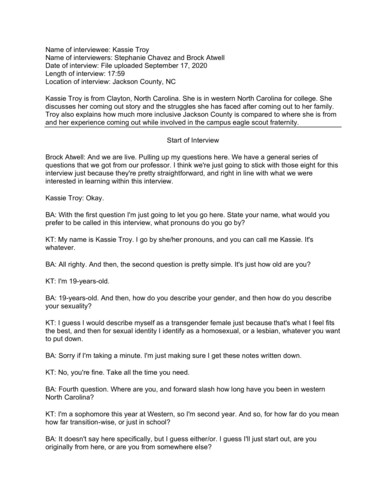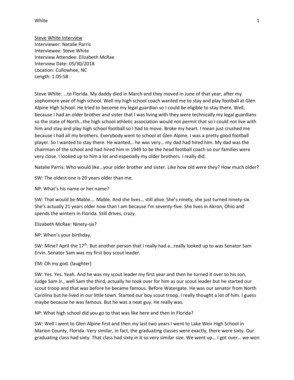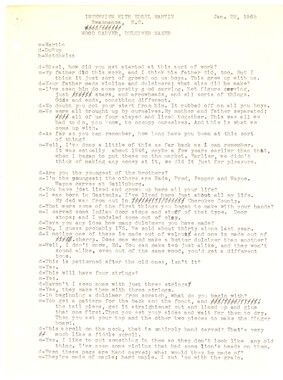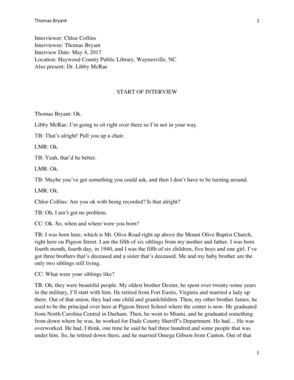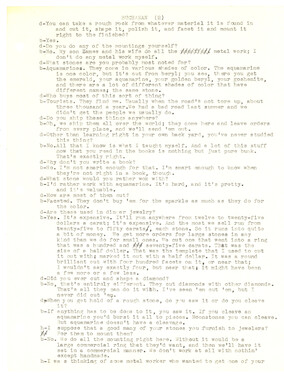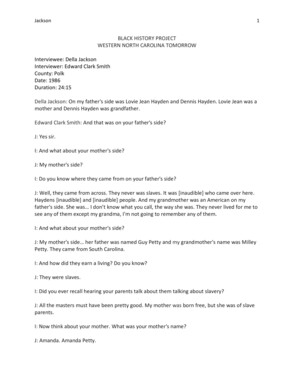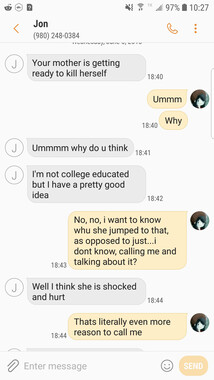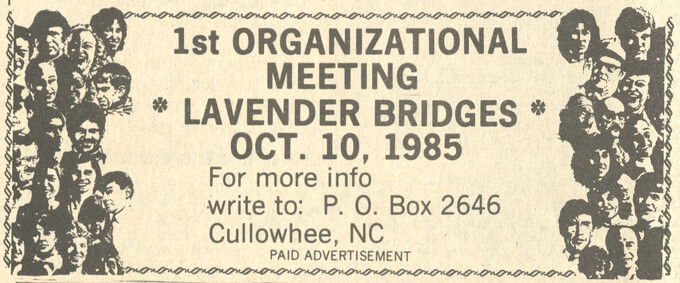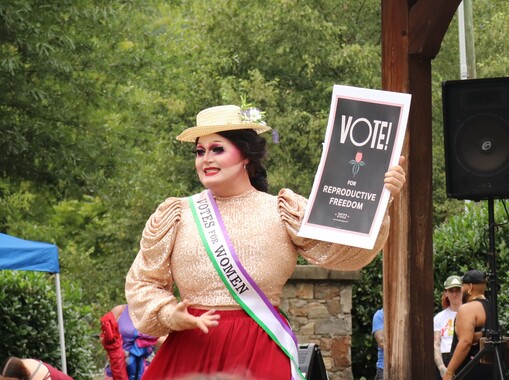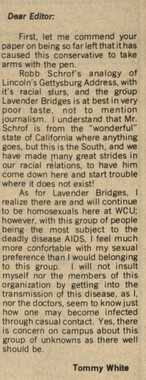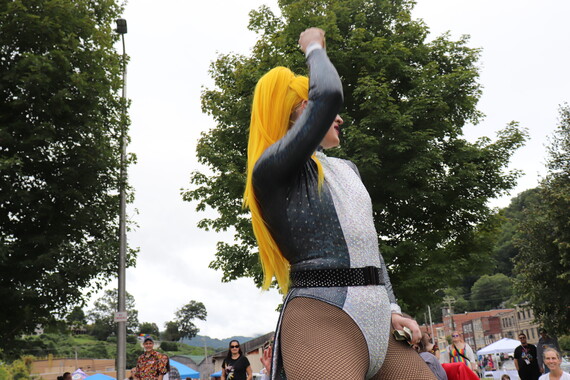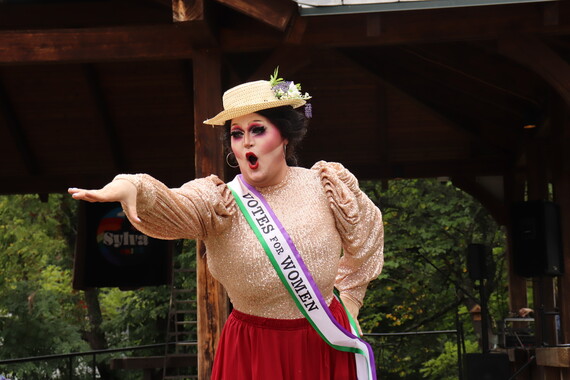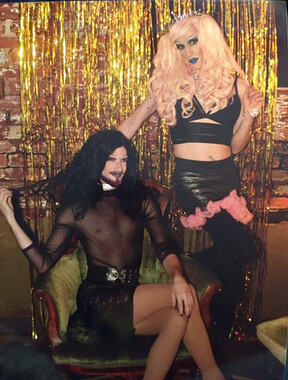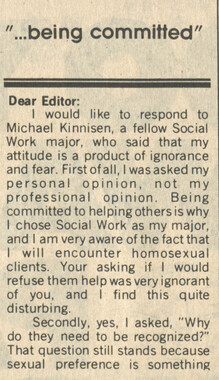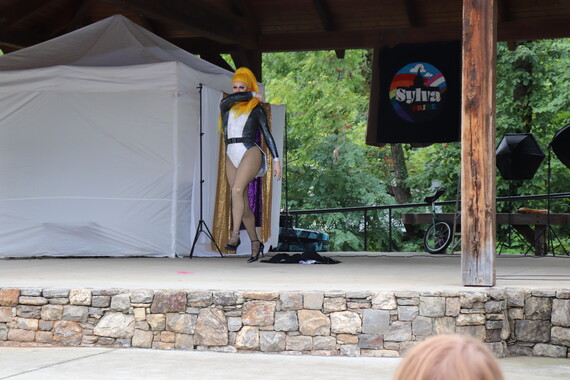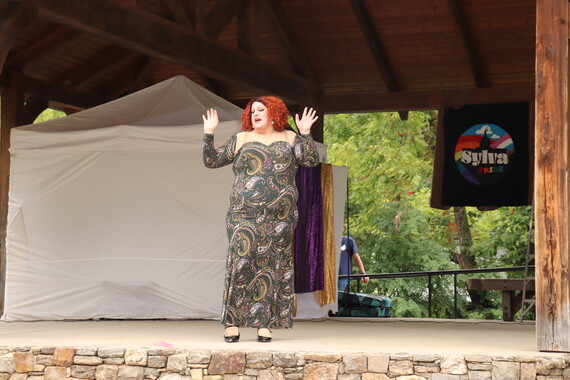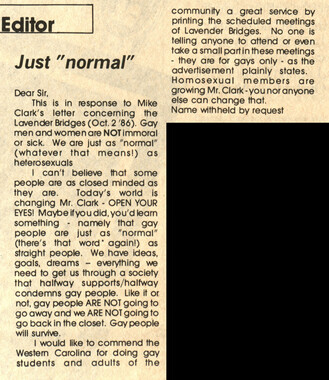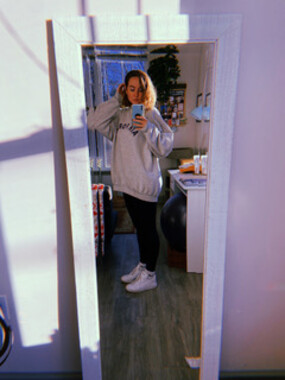Western Carolina University (20)
View all
- Canton Champion Fibre Company (2308)
- Cherokee Traditions (293)
- Civil War in Southern Appalachia (165)
- Craft Revival (1942)
- Great Smoky Mountains - A Park for America (2683)
- Highlights from Western Carolina University (430)
- Horace Kephart (941)
- Journeys Through Jackson (154)
- LGBTQIA+ Archive of Jackson County (15)
- Oral Histories of Western North Carolina (314)
- Picturing Appalachia (6679)
- Stories of Mountain Folk (413)
- Travel Western North Carolina (160)
- Western Carolina University Fine Art Museum Vitreograph Collection (129)
- Western Carolina University Herbarium (92)
- Western Carolina University: Making Memories (708)
- Western Carolina University Publications (2283)
- Western Carolina University Restricted Electronic Theses and Dissertations (146)
- Western North Carolina Regional Maps (71)
- World War II in Southern Appalachia (131)
University of North Carolina Asheville (6)
View all
- Allanstand Cottage Industries (62)
- Appalachian National Park Association (53)
- Bennett, Kelly, 1890-1974 (1295)
- Berry, Walter (76)
- Brasstown Carvers (40)
- Carver, George Washington, 1864?-1943 (26)
- Cathey, Joseph, 1803-1874 (1)
- Champion Fibre Company (233)
- Champion Paper and Fibre Company (297)
- Cherokee Indian Fair Association (16)
- Cherokee Language Program (22)
- Crowe, Amanda (40)
- Edmonston, Thomas Benton, 1842-1907 (7)
- Ensley, A. L. (Abraham Lincoln), 1865-1948 (275)
- Fromer, Irving Rhodes, 1913-1994 (70)
- George Butz (BFS 1907) (46)
- Goodrich, Frances Louisa (120)
- Grant, George Alexander, 1891-1964 (96)
- Heard, Marian Gladys (60)
- Kephart, Calvin, 1883-1969 (15)
- Kephart, Horace, 1862-1931 (313)
- Kephart, Laura, 1862-1954 (39)
- Laney, Gideon Thomas, 1889-1976 (439)
- Masa, George, 1881-1933 (61)
- McElhinney, William Julian, 1896-1953 (44)
- Niggli, Josephina, 1910-1983 (10)
- North Carolina Park Commission (105)
- Osborne, Kezia Stradley (9)
- Owens, Samuel Robert, 1918-1995 (11)
- Penland Weavers and Potters (36)
- Roberts, Vivienne (15)
- Roth, Albert, 1890-1974 (142)
- Schenck, Carl Alwin, 1868-1955 (1)
- Sherrill's Photography Studio (2565)
- Southern Highland Handicraft Guild (127)
- Southern Highlanders, Inc. (71)
- Stalcup, Jesse Bryson (46)
- Stearns, I. K. (213)
- Thompson, James Edward, 1880-1976 (226)
- United States. Indian Arts and Crafts Board (130)
- USFS (683)
- Vance, Zebulon Baird, 1830-1894 (1)
- Weaver, Zebulon, 1872-1948 (58)
- Western Carolina College (230)
- Western Carolina Teachers College (282)
- Western Carolina University (1794)
- Western Carolina University. Mountain Heritage Center (18)
- Whitman, Walt, 1819-1892 (10)
- Wilburn, Hiram Coleman, 1880-1967 (73)
- Williams, Isadora (3)
- Cain, Doreyl Ammons (0)
- Crittenden, Lorraine (0)
- Rhodes, Judy (0)
- Smith, Edward Clark (0)
- Appalachian Region, Southern (2393)
- Asheville (N.C.) (1886)
- Avery County (N.C.) (26)
- Blount County (Tenn.) (147)
- Buncombe County (N.C.) (1664)
- Cherokee County (N.C.) (283)
- Clay County (N.C.) (555)
- Graham County (N.C.) (233)
- Great Smoky Mountains National Park (N.C. and Tenn.) (478)
- Haywood County (N.C.) (3522)
- Henderson County (N.C.) (70)
- Jackson County (N.C.) (4692)
- Knox County (Tenn.) (21)
- Knoxville (Tenn.) (9)
- Lake Santeetlah (N.C.) (10)
- Macon County (N.C.) (420)
- Madison County (N.C.) (211)
- McDowell County (N.C.) (39)
- Mitchell County (N.C.) (132)
- Polk County (N.C.) (35)
- Qualla Boundary (981)
- Rutherford County (N.C.) (76)
- Swain County (N.C.) (2017)
- Transylvania County (N.C.) (247)
- Watauga County (N.C.) (12)
- Waynesville (N.C.) (68)
- Yancey County (N.C.) (72)
- Aerial Photographs (3)
- Aerial Views (60)
- Albums (books) (4)
- Articles (1)
- Artifacts (object Genre) (228)
- Biography (general Genre) (2)
- Cards (information Artifacts) (38)
- Clippings (information Artifacts) (191)
- Crafts (art Genres) (622)
- Depictions (visual Works) (21)
- Design Drawings (1)
- Drawings (visual Works) (184)
- Envelopes (73)
- Facsimiles (reproductions) (1)
- Fiction (general Genre) (4)
- Financial Records (12)
- Fliers (printed Matter) (67)
- Glass Plate Negatives (381)
- Guidebooks (2)
- Internegatives (10)
- Interviews (811)
- Land Surveys (102)
- Letters (correspondence) (1013)
- Manuscripts (documents) (619)
- Maps (documents) (159)
- Memorandums (25)
- Minutes (administrative Records) (59)
- Negatives (photographs) (5651)
- Newsletters (1285)
- Newspapers (2)
- Occupation Currency (1)
- Paintings (visual Works) (1)
- Pen And Ink Drawings (1)
- Periodicals (193)
- Personal Narratives (7)
- Photographs (12982)
- Plans (maps) (1)
- Poetry (5)
- Portraits (1654)
- Postcards (329)
- Programs (documents) (151)
- Publications (documents) (2237)
- Questionnaires (65)
- Scrapbooks (282)
- Sheet Music (1)
- Slides (photographs) (402)
- Sound Recordings (796)
- Specimens (92)
- Speeches (documents) (15)
- Tintypes (photographs) (8)
- Transcripts (322)
- Video Recordings (physical Artifacts) (23)
- Vitreographs (129)
- Text Messages (0)
- A.L. Ensley Collection (275)
- Appalachian Industrial School Records (7)
- Appalachian National Park Association Records (336)
- Axley-Meroney Collection (2)
- Bayard Wootten Photograph Collection (20)
- Bethel Rural Community Organization Collection (7)
- Blumer Collection (5)
- C.W. Slagle Collection (20)
- Canton Area Historical Museum (2110)
- Carlos C. Campbell Collection (198)
- Cataloochee History Project (65)
- Cherokee Studies Collection (4)
- Daisy Dame Photograph Album (5)
- Daniel Boone VI Collection (1)
- Doris Ulmann Photograph Collection (112)
- Elizabeth H. Lasley Collection (1)
- Elizabeth Woolworth Szold Fleharty Collection (4)
- Frank Fry Collection (95)
- George Masa Collection (173)
- Gideon Laney Collection (452)
- Hazel Scarborough Collection (2)
- Hiram C. Wilburn Papers (28)
- Historic Photographs Collection (236)
- Horace Kephart Collection (861)
- Humbard Collection (33)
- Hunter and Weaver Families Collection (1)
- I. D. Blumenthal Collection (4)
- Isadora Williams Collection (4)
- Jesse Bryson Stalcup Collection (47)
- Jim Thompson Collection (224)
- John B. Battle Collection (7)
- John C. Campbell Folk School Records (80)
- John Parris Collection (6)
- Judaculla Rock project (2)
- Kelly Bennett Collection (1314)
- Love Family Papers (11)
- Major Wiley Parris Civil War Letters (3)
- Map Collection (12)
- McFee-Misemer Civil War Letters (34)
- Mountain Heritage Center Collection (4)
- Norburn - Robertson - Thomson Families Collection (44)
- Pauline Hood Collection (7)
- Pre-Guild Collection (2)
- Qualla Arts and Crafts Mutual Collection (12)
- R.A. Romanes Collection (681)
- Rosser H. Taylor Collection (1)
- Samuel Robert Owens Collection (94)
- Sara Madison Collection (144)
- Sherrill Studio Photo Collection (2558)
- Smoky Mountains Hiking Club Collection (616)
- Stories of Mountain Folk - Radio Programs (374)
- The Reporter, Western Carolina University (510)
- Venoy and Elizabeth Reed Collection (16)
- WCU Gender and Sexuality Oral History Project (32)
- WCU Mountain Heritage Center Oral Histories (25)
- WCU Oral History Collection - Mountain People, Mountain Lives (71)
- WCU Students Newspapers Collection (1744)
- Western North Carolina Tomorrow Black Oral History Project (69)
- William Williams Stringfield Collection (2)
- Zebulon Weaver Collection (109)
- African Americans (388)
- Appalachian Trail (32)
- Artisans (521)
- Cherokee art (84)
- Cherokee artists -- North Carolina (10)
- Cherokee language (21)
- Cherokee pottery (101)
- Cherokee women (208)
- Church buildings (166)
- Civilian Conservation Corps (U.S.) (110)
- College student newspapers and periodicals (1830)
- Dams (94)
- Dance (1023)
- Education (222)
- Floods (60)
- Folk music (1015)
- Forced removal, 1813-1903 (2)
- Forest conservation (220)
- Forests and forestry (905)
- Gender nonconformity (4)
- Great Smoky Mountains National Park (N.C. and Tenn.) (154)
- Hunting (38)
- Landscape photography (10)
- Logging (103)
- Maps (84)
- Mines and mineral resources (8)
- North Carolina -- Maps (18)
- Paper industry (38)
- Postcards (255)
- Pottery (135)
- Railroad trains (69)
- Rural electrification -- North Carolina, Western (3)
- School integration -- Southern States (2)
- Segregation -- North Carolina, Western (5)
- Slavery (5)
- Sports (452)
- Storytelling (245)
- Waterfalls -- Great Smoky Mountains (N.C. and Tenn.) (66)
- Weaving -- Appalachian Region, Southern (280)
- Wood-carving -- Appalachian Region, Southern (328)
- World War, 1939-1945 (173)
Interview with Kassie Troy, transcript
Item
Item’s are ‘child’ level descriptions to ‘parent’ objects, (e.g. one page of a whole book).
-
-
Name of interviewee: Kassie Troy Name of interviewers: Stephanie Chavez and Brock Atwell Date of interview: File uploaded September 17, 2020 Length of interview: 17:59 Location of interview: Jackson County, NC Kassie Troy is from Clayton, North Carolina. She is in Western North Carolina for college. She discusses her coming out story and the struggles she has faced after coming out to her family. Troy also explains how much more inclusive Jackson County is compared to where she is from and her experience coming out while involved in the campus eagle scout fraternity. Start of Interview Brock Atwell: And we are live. Pulling up my questions here. We have a general series of questions that we got from our professor. I think we're just going to stick with those eight for this interview just because they're pretty straightforward, and right in line with what we were interested in learning within this interview. Kassie Troy: Okay. BA: With the first question I'm just going to let you go here. State your name, what would you prefer to be called in this interview, what pronouns do you go by? KT: My name is Kassie Troy. I go by she/her pronouns, and you can call me Kassie. It's whatever. BA: All righty. And then, the second question is pretty simple. It's just how old are you? KT: I'm 19-years-old. BA: 19-years-old. And then, how do you describe your gender, and then how do you describe your sexuality? KT: I guess I would describe myself as a transgender female just because that's what I feel fits the best, and then for sexual identity I identify as a homosexual, or a lesbian, whatever you want to put down. BA: Sorry if I'm taking a minute. I'm just making sure I get these notes written down. KT: No, you're fine. Take all the time you need. BA: Fourth question. Where are you, and forward slash how long have you been in Western North Carolina? KT: I'm a sophomore this year at Western, so I'm second year. And so, for how far do you mean how far transition-wise, or just in school? BA: It doesn't say here specifically, but I guess either/or. I guess I'll just start out, are you originally from here, or are you from somewhere else? KT: Okay. I'm from Clayton, North Carolina. It's 45 southeast of Raleigh, but ever since I've been a Western I've been living up here. BA: You've been in Cullowhee for two years, and you originally hail from Clayton. KT: Yeah. BA: Got you. Question five. Can you tell us about your life as an LGBTQ individual, your internal reactions, and life path, coming out story, anything you'd like to share that falls within that? KT: I guess to put it lightly it's been a rocky road. I know a lot of people say that, but my household is a very Christian household, so my mother tried to raise both my sister and I as Lutheran, or Protestant, and then my dad's a Baptist. My mom's very religious, so it's a conflict there with what I want to do, and both my parents aren't that supportive. I've had that coming out story. I just sat them down one night. It was a year and a half, two years, after I felt the way I did. I was sure on what I wanted to do, so I sat them down on the couch with everybody, and it didn't go the way I wanted, obviously, but at least I got it out there. My sister said she supports me wholeheartedly, so I guess I got one little wedge in. It's been rocky. I've been trying to figure out what I want to do with my life because I've got to do it pretty much all myself. I won't have any financial support, so it's a little bit rough trying to figure that out. BA: Got you. That's great that your sister supports you on that. Not to interject within learning about you any, but I actually have a cousin that is also going through the phases of being transgender, and was originally a male, and had a sex change, and my family background's kind of the same way, pretty straightened arrow Christian, and it doesn't really align with their views, so there's a little bit of a lack of understanding there. This is an added question just for curiosity's sake. When was this initial conversations with your family just so we can get a gauge of time? KT: Shoot. Actually, probably around my sophomore year of high school, maybe early junior year. It was a bit ago. BA: Yeah. About four or five-ish years ago. KT: Man, that seems like such a long time ago. It feels like a month ago. BA: Yeah, I bet. We'll go on to the next question. What struggles do you encounter as an LGBTQ person here in Jackson County? Do you think anything would differ if you lived somewhere else? If yes, how? KT: The thing about living in Jackson County is that it's from what I've seen it's a lot more of an accepting community than where I was living in Johnston County. In Johnston County, if someone knew you were a part of LGBTQ community it's ... I don't won't to say frowned upon, but it's judged a little, but up here everyone's so accepting and honest, and so it's hard to actually accept myself up here because when I'm back home I feel I act like a different person if that makes sense, so I don't cause any conflict, and so I don't out myself to people who don't know about it yet, so I have to act a different sort of way. It's a little bit different, but personally in Jackson County I haven't really had any problems with it. Stephanie Chavez: I wanted to ask a quick question actually. You said that you were going to have rushing this week with Greek life, right? KT: It's not Greek life. I'm in an eagle scout fraternity, and so I've talked to the higher ups about that, about my situation, and they said they don't have a problem with it, but they are going coed anyways, so it's not really going to be a problem with that. SC: Okay. Okay. Yeah, that's kind of what I was wondering, if you had any conflicts with that. KT: No. When I was going through the candidacy process right before we were initiated I had everyone in a group and just came out to them right then and there, and said I don't want anything being rumor spread, and just infiltrated into the fraternity, so I'm just going to say it now, and if you guys have a problem with it then I'll just go ahead and go, and they were perfectly fine with it. They didn't have any problems with it whatsoever. They try to respect my pronouns the best they can, and stuff like that. It's real accepting. SC: All right. Cool. BA: Yeah. That's great to hear. I know that can be a hard conversation to start, especially with people that you just met. It excites me that you had that sort of transparency up front. Next question. I know you said that everything was a little bit more receptive in Jackson, and we'll go ahead and ask this question, since you've been in Western North Carolina what changes have you seen in receptiveness to the LGBT community broadly? And then, how about to you as an individual? KT: That's kind of like what I said. Everyone's really accepting, and then from what I've seen around ... I know of course there's always going to be a little bit of problems here and there. That's just human nature, but so far it's a completely different world up here. It's just like no one really care what you're doing with your life. No one cares what you're doing. No one cares how you act, unless you're acting stupid then that's a different story. KT: As far as LGBTQ goes, it's like it doesn't even matter to people. They're just, "Oh, cool. That's awesome. You're living your life the way you want," and that's what I've had people say to me too. I've talked to a couple people who are obviously higher grades than I am, and they try to give me a little bit of guidance. They try to help out the best they can regarding different situations and stuff like that. BA: Yeah. That's awesome. That's awesome for sure. And then, the last question simply just states is there anything else you'd like to share that we haven't asked about yet? KT: I guess it's just for anyone else part of the LGBTQ community. Just don't be afraid to put yourself out there, get yourself out of your comfort zone, because if you just stay in your own little bubble, and just keep with your little friend group, or whatever, you're not really going to branch yourself outwards. You're not going to grow with your confidence level, especially if you're going on T or E transgender-wise. If you don't boost your own self-confidence and have people confident in you if that makes sense then it's more than likely that you're not going to take those steps to actually transition, so if you just get yourself out there and not be afraid to let people know who you are then you're going to have a lot better experience going through life. SC: I had one more question actually that I wanted to ask. KT: Yeah, sure. SC: You talked about coming out multiple times to different people and stuff, and I was wondering if it's scary every time, or if you feel more comfortable with certain people, or just how you feel? KT: It's a mixture of all the above, honestly, because it depends on the people you're with, but every time I've come out to groups of people, I've done it three times now, I left one out just because it's kind of irrelevant because I was in Germany, but it's just a matter of it's always going to be a little bit ... You're going to be nervous. I want to say the more close you are to people the more scared and nervous you are, and with completely new people, so it's just the more you're comfortable with people I guess the more easy it is. It's never easy, but you can probably get what I'm coming across with that. It just really matters on what your relationship is with people, and your confidence level. Sometimes regarding my fraternity I did it as a source of if they were to find out later, and I didn't tell them, if they had a problem with it then I could have consequences for that, so that time I was like I might as well do this just so they know, and just so I'm all in the clear type of thing. It's situational too. SC: Yeah. Yeah. You said in Germany. Personally, it might be irrelevant to you, but I'm actually interested in hearing about that. What was it like in a different country? KT: Yeah. It was before my freshman year, so I went on a gap abroad program to Germany for five weeks with a little group. It was nice out there, and stuff like that, but regarding my coming out stuff I told a few people that I got close to just because I felt comfortable with them knowing, and then I guess one of them started spreading it around the group, and some rumors started emerging, and stuff like that. KT: I was like, "No, that is not what's going on." This and that. And so, then I just sat everyone down one morning and just came out just flat out to them, and said, "This is what's going on. I don't want these rumors to continue any longer, so this is what's going on, and you're going to have to respect me for that." They were fine with it, but the people that I didn't really get along with it was different, because they would respect me as a member of the community, but as a person their respect for me dropped. It's like you're really cool for doing this, but at the same time I don't like you, so it's whatever. SC: Ridiculous. KT: It's interesting. SC: Would you say it's different because of the difference in countries? KT: I don't want to say difference in country. It was just more the situation. SC: Like society. Yeah, situation. Okay. Yeah, that makes sense too. KT: Yeah. And so, of course I met the German people there, and stuff like that, and I guess the part of Germany I was in they didn't really have a problem with it with the people I met, and the people who knew about it. I guess it was just mostly the group I was with. That's why I said I came out to my fraternity flat out just because I didn't want rumors like that spreading around, starting up again. SC: And then, earlier you were also talking about when we were asking you where are you from, or how far or you, or something like that ... I am wondering how far are you in your transition, and how do you feel about that? Where would you like to be? KT: Basically, right now I'm nowhere. SC: Okay. All right. KT: I lack funding, and I don't have the support. I'm starting to get confidence kind of sort of. It's building. It's just hard finding people that actually are there for me for it. Of course, I've got friends up here that accept me, and my sister accepts me, but it's different when it comes to buying stuff for myself, or stuff like that, because I'm not a very social person, and so I always feel like I'm being judged, or something like that. And of course, it's not people it's just my mental process. I'm like people are looking at me weird kind of. SC: Yeah. I completely understand that, actually. KT: Yeah, but the way I want to be I want to be able to fully transition over, because I'm obviously male to female, so I obviously want to fully transition over once I get the funding to because ... I don't know what the situation is with people below 18. I think it's like you have to go through a counselor, and the counselor has to approve you're transgender, and then you can start doing it if you have the approval from your parents, but since I'm over 18 I can just do it whenever. I can just skip that step and just start whenever, but the only problem is I don't know where to get started on that. I don't have the funding for it, and I don't want to take out a loan for it, because honestly I don't want to pay it back. KT: I'd rather just save up for it, and just be done with the fee, but at the same time I don't want to wait until I'm 40 to transition over, so if I just pull out a loan that could just solve all my problems easily. It's just a matter of time, just figuring it out. I hope that answer your question. SC: Yeah. Yeah. It totally does. BA: Absolutely. SC: I think those are all the questions I have. I don't know if Brock has anything else he wants to add. BA: Yeah. That's about all I really had. Again, I didn't really have too much outside of the original eight questions that were posed just because that was what was in the realm of what I was really interested in. I guess the one thing that I would like to ask, and I think would be a pretty cool one to close out on, is I guess what does it mean to you overall, what does it mean to you to be a part of a community like LGBTQ, and specifically how do you feel like you fit into that spectrum? KT: I guess it's a lot more different than normal society I guess since everyone's so accepting, and you're exposing the most vulnerable parts of yourself, that people they can actually relate to your circumstance, and they can actually relate to you on a personal level, and it makes friendships easier I guess. I guess what I'm trying to say it's better for you to have a close community like that, that they know what you're going through, and they know how to help in certain circumstances, and so you have an actual sense that you fit in somewhere. Anyone in a normal society it's like you're trying to find your place and where you fit in. You're trying to find your place in life, but in the LGBTQ community it's just everyone's there for you if you let them be, if you push people away then obviously it's going to be harder. SC: Yeah. KT: Yeah. BA: Cool. I think that shall do it for this interview. I really appreciate everyone's time doing this, and I feel like we got some really great answers, and it was really exciting to get to hear your story for sure. KT: Yeah, no problem. SC: Yeah. Thank you so much. I really appreciate it. KT: Yeah, of course. BA: I guess we can go ahead and end this session if we're all good. SC: All right, yeah. I'm good. KT: All right. BA: All right, guys. Take care. SC: You guys have a nice day. KT: Take care. SC: Thanks. KT: You too. SC: Bye.
Object
Object’s are ‘parent’ level descriptions to ‘children’ items, (e.g. a book with pages).
-
Kassie Troy is from Clayton, North Carolina, and now lives in western North Carolina for college. She discusses coming out to her family in high school as a transgender female. Troy explains how much more inclusive Jackson County is compared to Johnston County and the support she has found in the LGBTQ community. She shares her experience coming out while involved in the campus Eagle Scout fraternity and talks about the obstacles she faces in transitioning from male to female, especially financially.
-
